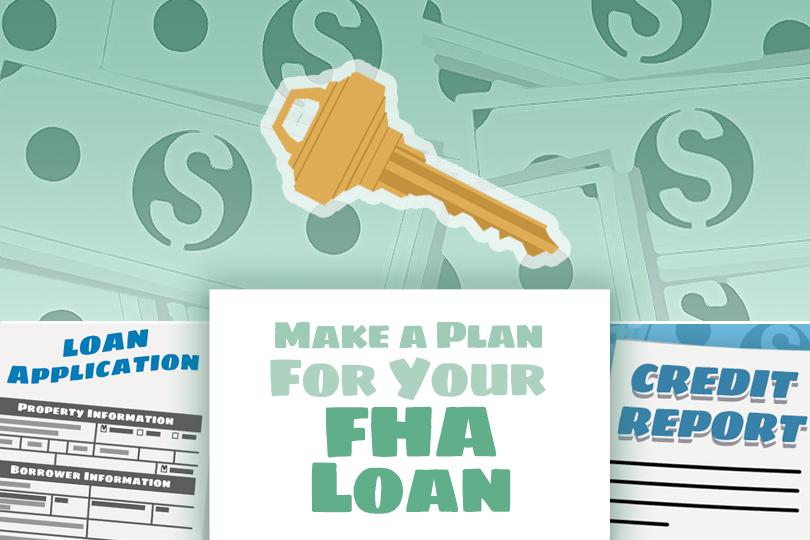Which Insurance Do You Need When Buying A Home?
February 18, 2025
Key Differences
Homeowner's Insurance: Protects against property damage, liability, and loss of use. For the borrower.
- Required by most lenders regardless of loan type.
- Premiums are paid annually.
- Renewable annually.
- Required for FHA loans with low down payments.
- Premiums are paid upfront and annually.
- May be cancellable after a certain period, depending on loan terms.
Homeowner's insurance is a policy that protects physical property and provides liability coverage. It is for the borrower, protecting your investment.
A standard homeowner's insurance policy typically covers the following:
- Dwelling: This covers the physical structure of your home and may include attached structures like a garage or deck. If your home is damaged or destroyed by a covered peril, the insurance will help cover the costs of rebuilding or repairing it.
- Personal Property: This covers your belongings inside the home, such as furniture, appliances, clothing, and electronics. Coverage extends to damage or loss from covered perils, even if the items are outside the home. Some policies may offer replacement cost coverage, which pays the current cost of replacing the item, while others offer actual cash value, which factors in depreciation.
- Other Structures: This is for detached structures on your property, such as sheds, fences, detached garages, etc..
- Loss of Use: If your home becomes uninhabitable because of a problem covered in your policy, this coverage may help with additional living expenses, including temporary housing, meals, and other related costs, while your home is being repaired or rebuilt.
- Liability Protection: This covers you if you're held responsible for someone's injury or property damage on your property. For example, if someone slips and falls on your icy sidewalk, this coverage can help pay for medical bills and legal expenses.
- Medical Payments: This covers medical expenses for guests injured on your property, regardless of who is at fault. It's often referred to as "guest medical" coverage.
While comprehensive, homeowner's insurance policies typically exclude certain events and damages, including:
- Earthquakes and Floods: These natural disasters usually require separate insurance policies or clauses.
- Wear and Tear: Gradual deterioration of your property due to age or neglect is not covered.
- Pest Infestations: Damage caused by termites, rodents, or other pests is generally not covered.
- Intentional Acts: Damage caused intentionally by the homeowner is excluded.
When applying for an FHA loan, you must demonstrate proof of adequate homeowner's insurance. Lenders typically require coverage that meets or exceeds the loan amount.
Mortgage insurance is a type of insurance that protects the lender. It is not meant to protect the FHA borrower. Lenders use this insurance to protect them in case of loan default. Typical FHA loan transactions will require mortgage insurance.
Homeowner's insurance protects you, but FHA mortgage insurance mitigates the lender's risk associated with lending to borrowers with lower equity in the property.
Types of Mortgage Insurance for FHA Loans
FHA loans have two mortgage insurance premiums (MIP):
- Upfront Mortgage Insurance Premium (UFMIP): This is a one-time premium paid at closing or rolled into the loan amount. The amount is typically a percentage of the base loan amount.
- Annual Mortgage Insurance Premium (AMIP): This is an annual premium paid in monthly installments as part of your mortgage payment. The amount is calculated based on the loan amount, loan term, and loan-to-value (LTV) ratio.
When applying for an FHA loan, work closely with your lender to understand the specific requirements for both mortgage insurance and homeowner's insurance. Ask about the different types of mortgage insurance premiums, the duration of coverage, and the process for cancellation, if applicable.

FHA Loan Articles
January 28, 2025Are you dreaming of transforming a diamond-in-the-rough house into your ideal home? Fixer-uppers offer a unique opportunity to personalize your living space and potentially build equity at a price lower than some occupant-ready homes.
January 27, 2025When buying or selling a home, two critical processes are often confused: the appraisal and the inspection. Though both involve a thorough examination of the property, they serve distinct purposes and provide different types of information vital to a successful FHA loan transaction.
January 22, 2025Consider this scenario: you've been in your home for five years or more and you've likely built up a significant amount of equity, and now you might be wondering how to put that equity to work for you. Whether you're dreaming of a major renovation, need to consolidate debt, or want to help a child with college tuition, you have options. Two choices are an FHA cash-out refinance and a home equity line of credit (HELOC).
January 20, 2025The FHA Streamline Refinance offers a refinance option for those who don't want to cash in on their property's equity but instead want a lower payment or interest rate or who need to get out of an adjustable-rate mortgage. This streamlined program, designed specifically for those already in an FHA-insured mortgage, simplifies the refinancing process with fewer requirements and faster approval times depending on the transaction.
January 16, 2025Want to buy a home and thinking about getting an FHA loan? FHA loans are a great way to make homeownership happen, especially if you're a first-time buyer or don't have perfect credit. But you might wonder, "Can I get more than one FHA loan?"
The short answer is, it's tricky. The FHA itself doesn't say no automatically to having more than one loan. But there's a caveat. FHA loans are about helping you buy a place to live in – your main home base. Because of this, and a few other things, getting multiple FHA loans isn't easy.







